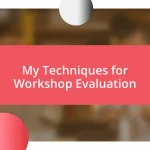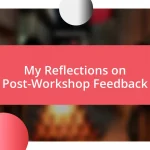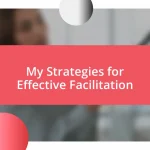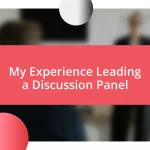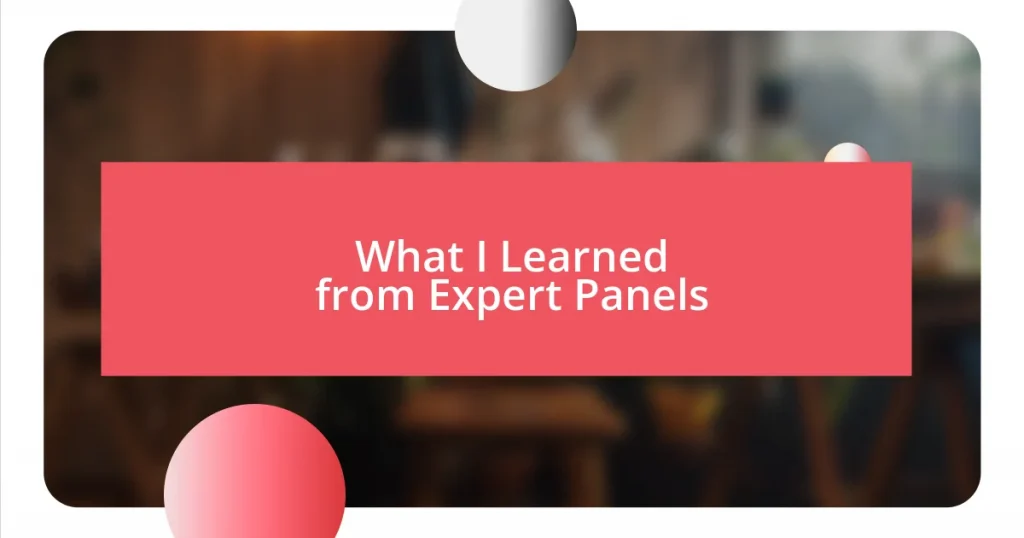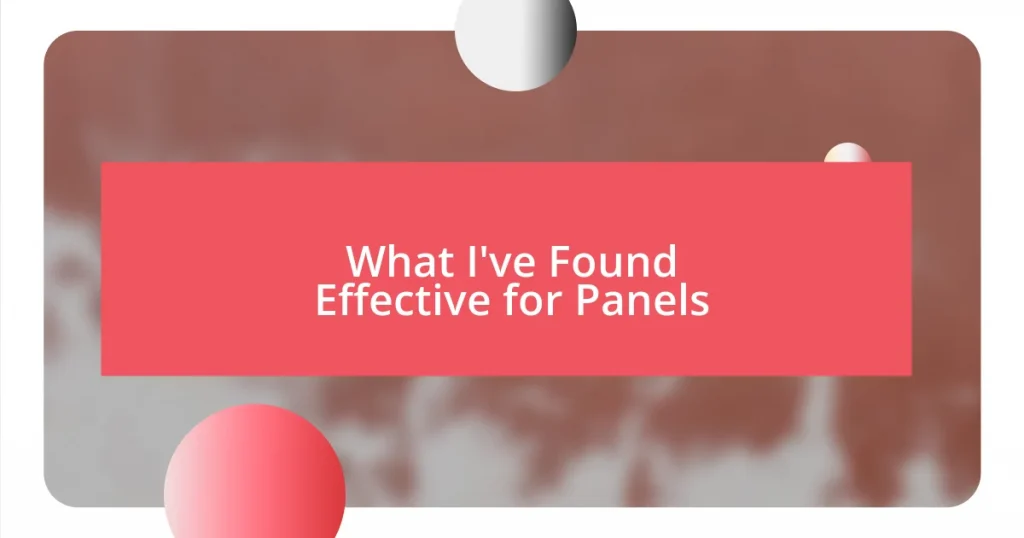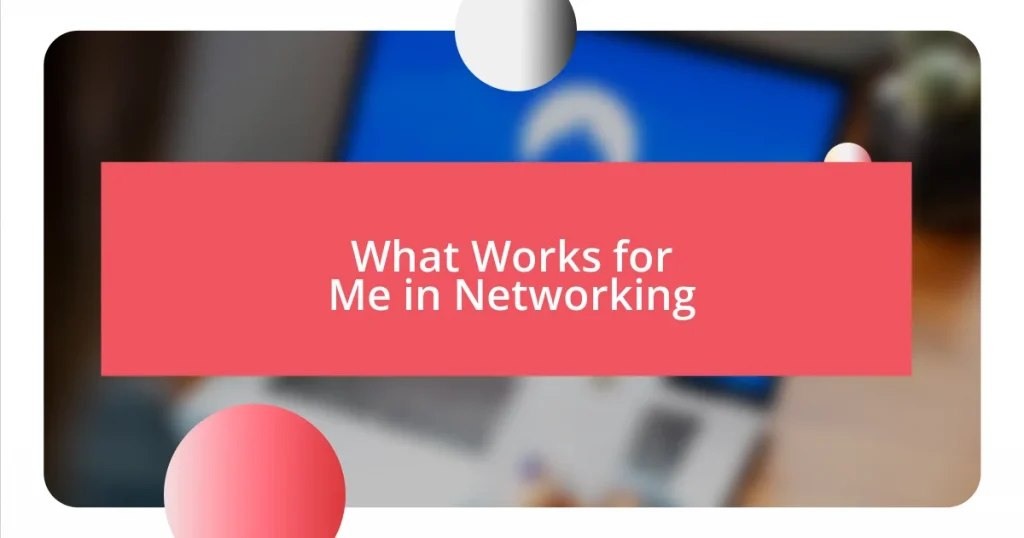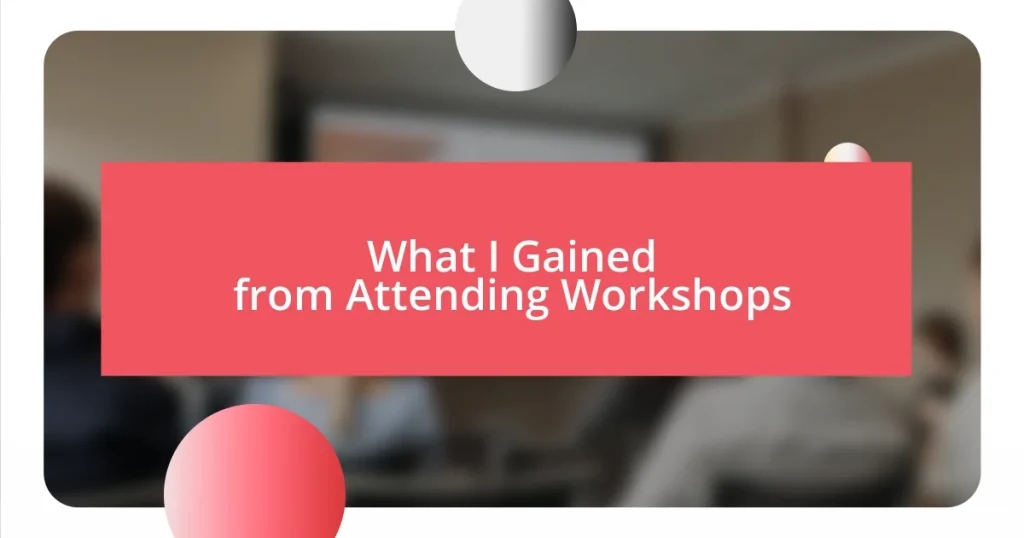Key takeaways:
- Expert panels foster open dialogue and innovative solutions by bringing together diverse perspectives and encouraging passionate discussions.
- Thorough preparation, including researching topics and crafting thoughtful questions, enhances participation and enriches conversations in panel discussions.
- Continual learning from experts and engaging with different viewpoints can lead to personal growth, actionable insights, and collaborative opportunities.

Understanding Expert Panels
Expert panels are fascinating assemblies of individuals who possess deep knowledge in their respective fields. I vividly remember attending a panel discussion on climate change, where experts shared insights that I’d never encountered before in mainstream media. Their unique perspectives sparked a sense of urgency in me; it was eye-opening to witness how interconnected and complex our global challenges truly are.
In my experience, participating in discussions with experts often brings about unexpected revelations. For example, during a technology panel, I found myself deeply engaged when one expert shared how emerging technologies could reshape education. I couldn’t help but wonder: how can we leverage these advancements to better prepare future generations? That moment underscored how panel discussions are not just informative but also deeply thought-provoking.
What’s remarkable about expert panels is their ability to facilitate open dialogue among diverse perspectives. I recall an instance when a heated debate arose between two panelists from opposing backgrounds. Their disagreements led to richer insights on the matter at hand, revealing how such interactions can lead to innovative solutions. Isn’t it incredible how different viewpoints can challenge our own and ultimately drive progress?

Identifying the Right Experts
To identify the right experts for an panel, you’ll want to look for individuals who not only have credentials but also a passion for their field. I remember a panel I attended where one expert didn’t just rattle off facts; she spoke with an infectious enthusiasm about her research on renewable energy. Her energy shone through, making the discussion much more engaging and informative. Passion can transform a talk into a compelling narrative that resonates with the audience.
Here are a few key factors to consider when selecting the right experts for your panel:
- Relevance: Ensure their expertise directly aligns with the topic being discussed.
- Diversity of Thought: Look for individuals with varied perspectives to enrich the conversation.
- Communication Skills: Find experts who can articulate their ideas clearly and engagingly.
- Personal Experience: Seek out those who bring real-world experiences that can make concepts relatable.
- Enthusiasm: Identify experts who genuinely care about their subject; it can ignite a deeper interest in the audience.
By focusing on these attributes, you’ll be better equipped to curate a panel that not only informs but also inspires.

Preparing for Panel Discussions
Preparing for a panel discussion can feel quite daunting, especially if it’s your first time. I recall the butterflies I had before my first panel; the key for me was thorough preparation. Reviewing the topics to be discussed, understanding the panelists’ backgrounds, and even researching some common questions helped to ease my nerves. It’s all about feeling informed and ready to participate confidently.
I’ve learned that crafting thoughtful questions ahead of time can significantly enhance the discussion flow. In one instance, I prepared a couple of probing questions for a panel on mental health. When my turn came, asking about the intersection of cultural stigma and mental healthcare led to a riveting conversation. Have you thought about how well-prepared questions might shape the insights shared during such discussions? It really struck me how a good question can steer the dialogue in unexpected yet enriching directions.
Lastly, rehearsing your role doesn’t hurt either. Before a recent environmental panel, I practiced my speaking points with a friend who offered valuable feedback. It made me realize how essential it is to be clear and concise while still allowing room for spontaneity. The combination of preparation and authentic engagement can lead to powerful conversations that resonate long after the panel ends.
| Preparation Strategy | Description |
|---|---|
| Research | Understand the topics and panelist backgrounds to gain confidence. |
| Question Crafting | Prepare thoughtful questions to guide and enrich discussions. |
| Rehearsal | Practice speaking points to improve clarity and spontaneity. |

Effective Listening Skills
Effective listening is a crucial skill I’ve picked up from expert panels. It’s not just about hearing the words; it’s about truly engaging with what the speaker is conveying. I remember a moment when I was seated in a panel discussion on technology, and one expert shared a personal story. By actively listening—not just nodding along—I managed to connect deeper with their experience, which allowed me to formulate more meaningful follow-up questions.
I’ve also found that effective listening requires a level of vulnerability. Opening up to different perspectives often challenges my preconceptions, which can be uncomfortable. Yet, I recall a specific session on community health where I didn’t just listen; I felt compelled to understand the emotional weight behind each speaker’s words. It made me ponder: how often do we really allow ourselves to listen, rather than just wait for our turn to speak?
Moreover, I learned the importance of non-verbal cues in effective listening. One time during a panel, I noticed how the speakers responded not just to words but to the audience’s body language and engagement. It hit me that listening involves more than sound; it encompasses facial expressions, gestures, and even silence. How can we hone our ability to be receptive in every aspect when engaging with others? Drawing from these experiences, I’ve since made it a personal goal to become a more attuned listener, both in panels and in everyday life.

Building on Diverse Perspectives
Building on diverse perspectives is a significant lesson I’ve gleaned from my experiences in expert panels. I remember attending a session where specialists from various cultural backgrounds discussed education systems. Hearing their stories was eye-opening; each panelist offered a unique lens shaped by their experiences. It made me realize just how critical it is to embrace differences, as they unveil solutions I had never considered before.
One poignant moment occurred during a discussion about climate change, where a scientist shared her research alongside a local activist’s personal journey witnessing its effects. This blend of empirical data and human experience deeply moved me. It struck me that diverse perspectives not only enrich our understanding but also foster empathy. How often do we overlook the emotional narratives behind the statistics? Engaging with these stories has encouraged me to seek out and embrace various viewpoints in my own discussions.
Moreover, I’ve found that being open to different perspectives often leads to unexpected avenues for collaboration. Recently, I participated in a panel where a colleague proposed a solution to a problem I thought was insurmountable. Our dialogue spurred new ideas, merging our respective fields. It left me wondering: how frequently do we limit ourselves by not exploring viewpoints outside our own? By actively building on diverse perspectives, I believe we can unlock creativity and innovation in ways we may not anticipate.

Applying Insights to Practice
Applying the insights I’ve gathered from expert panels into practical situations has been an enlightening journey. I recall a lively discussion on mental health where panelists articulated the value of self-care practices. Inspired by their insights, I started to implement daily mindfulness exercises. It was surprising how allocating just ten minutes a day to meditation transformed my approach to stress management. I often wonder how many others feel that small changes can lead to significant shifts in perspective and well-being.
One striking example involved a panel discussing leadership styles. An experienced leader shared a story about embracing vulnerability in his role and how that fostered trust within his team. I took a step back after hearing that—could vulnerability actually enhance leadership effectiveness? In my own experience, I began to share my challenges more openly with colleagues. The result was a more cohesive team environment, where everyone felt empowered to be authentic. This taught me that applying insights from such discussions isn’t merely about adopting new practices; it’s about embodying new mindsets.
Lastly, I learned the power of actionable steps when applying insights from panels. During a workshop on sustainable practices, a panelist emphasized the importance of setting achievable goals. I decided to set one small, measurable objective each week—like reducing plastic usage. The incremental successes not only kept me motivated but also created an avenue for community engagement. I often ask myself: how can setting small goals lead to larger societal changes? Each step I take not only solidifies my commitment to sustainability but has also inspired friends to join my journey.

Continual Learning from Experts
Continual learning from experts is an enriching, ongoing process that fuels my personal and professional growth. For instance, I vividly remember a panel where experts discussed the future of technology. I was struck by an engineer’s perspective on the ethical implications of artificial intelligence. Her insights made me ponder: how often do we stop to consider the ramifications of the innovations we celebrate? That conversation reinforced to me that staying updated and learning from those at the forefront isn’t just beneficial; it’s essential for responsible participation in any field.
Through these experiences, I’ve discovered that each interaction offers a wealth of knowledge waiting to be tapped into. I once attended a panel on communication strategies, where a psychologist shared a technique for active listening. This wasn’t just a professional tip; it ignited curiosity in me. Could enhancing my listening skills transform my relationships? I began to practice this approach actively, and the results were astounding—deeper connections, better collaborations. The realization that I could grow through the wisdom of others was, frankly, exhilarating.
Moreover, I’ve come to appreciate the value of asking questions—a simple yet powerful tool for continual learning. During a discussion on global health challenges, I decided to challenge myself by asking, “What gaps still exist in our understanding?” That moment opened a dialogue, revealing insights I hadn’t considered. It left me wondering: how many enlightening conversations could we initiate by embracing inquiry? These interactions remind me that learning doesn’t end after a panel; it continues in our willingness to explore, ask, and connect with the wisdom around us.




